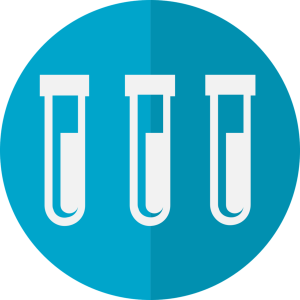
Strap in, because I’m about to completely change your idea about what “healthy” workouts look like.
It’s true that working out can help raise your testosterone levels if you’re suffering from low testosterone. But not the workouts you might imagine.
You don’t need to workout every day to boost testosterone.
You don’t need to workout more than 30 minutes to boost testosterone.
You don’t need to run marathons to boost testosterone.
In fact, it’s not that you just don’t need to—you shouldn’t actually work out every day, workout too much, or run long distances.
Instead, you should be focusing on strong bursts of resistance training.
In this article, I’m going to give you the specifics about how to exercise to boost your testosterone levels and get back on track to ultimate sexual and overall health.
Does exercise boost T levels?
In short, the answer to this question is, yes. Exercise can boost testosterone levels—if you exercise correctly. Testosterone is the hormone that controls muscle synthesis and energy, and it also helps regulate weight. Since exercise is also important for muscle and weight, the two go hand-in-hand to lend towards overall health and wellness.
Research shows two major impacts of exercise on testosterone levels: short-term and long-term.
Firstly, testosterone spikes 30 minutes after a training workout. However, testosterone returns to resting levels after about an hour. This means that there’s only a short-term spike in testosterone during the day.
But that doesn’t mean that short-term spike isn’t helping long-term. In fact, research shows that the more frequently men experience this quick T spike, the greater their resting testosterone level.
This means that exercising boosts testosterone levels most significantly in the short-term but most profoundly in the long-term. If you consistently workout to raise T levels, your resting T levels will start to raise methodically and permanently.
Working out also has an indirect relationship with testosterone due to the impacts of exercise on body fat, stress, and sleep.
Body fat
Working out helps reduce body fat, especially around the midsection. Maintaining a healthy body weight is important to healthy levels of testosterone. Visceral fat can actually raise cortisol and estrogen, which in turn lowers testosterone.
If you want high levels of testosterone, you need a healthy weight.
If you want to lose weight, you need to be moving and exercising consistently.
Stress
Exercise is a proven stress reducer. It releases endorphins that make you happier while reducing anxiety and depression.
When you’re stressed, your body releases cortisol (the “stress hormone”). Cortisol and testosterone have an inverse relationship. High cortisol equals low testosterone and vice versa.
This is because cortisol and testosterone are both made from the same “base” hormone called pregnenolone. If the body has to use more pregnenolone to make cortisol, it won’t have enough left over to make testosterone. This is called “cortisol steal” because it steals away the building blocks of necessary T production.

Sleep
Getting enough sleep is an important part of testosterone production. Studies show that sleeping too few hours can drastically lower testosterone by boosting cortisol to exorbitant levels.
Working out can help you sleep better. It uses up extra energy and trains your muscles, so you’re more likely to get a higher quantity and quality of sleep. Exercise also lowers cortisol, so you can have a more restful night’s sleep. and Plus, since working out reduces your stress, you’ll be in a better mental state to help fall asleep.
Still don’t believe that exercise boosts testosterone?
Check out the scientific proof:
- Serum testosterone response to high-intensity resistance training in male veteran sprint runners
- The effect of short-term strength training on human skeletal muscle: the importance of physiologically elevated hormone levels
- Associations of exercise-induced hormone profiles and gains in strength and hypertrophy after weight training
- Neuromuscular and hormonal adaptations in athletes to strength training in two years
What kind of exercise boosts testosterone?
 Not all exercise is created equal when it comes to raising testosterone levels.
Not all exercise is created equal when it comes to raising testosterone levels.
Resistance training (lifting weights) is the best way to raise testosterone. Studies show that strength training can actually induce the release of growth hormone and testosterone regardless of age.
In reverse, research shows that long-distance running can actually lower testosterone levels. In fact, one study found that the long-distance runners had lower T levels than even the non-athletic group. This is because running for long distances over-stresses the body. This stress releases cortisol, aka the “stress hormone,” and leads to cortisol steal (as discussed above).
For the same reason, you want to avoid overtraining or over-exerting your body during workouts. Working out too hard can release cortisol that reduces the production of testosterone.
So yes, I’m telling you not to overdo it with your workouts if you want to see T-raising benefits!
When to workout
There are two schools of thought with regards to when you should work out to best boost testosterone.
The first is that you should work out in the late afternoons or early evenings.
Testosterone is naturally highest in the morning. Testosterone is actually one of the hormones that helps you wake up in the morning with energy and vigor. (That’s why men with low testosterone often feel fatigue, low energy, and low interest.)
T levels naturally fluctuate throughout the day, but they steadily decline as the day progresses. This is one of the reasons you might find that you start to lose some of your energy in the middle of the day.
The second school of thought is that you should work out in the mornings.
Studies show that working out on an empty stomach has the greatest fat burning benefits. Burning fat can help raise testosterone levels. Lifting weights on an empty stomach can also help increase metabolism and muscle synthesis, which can further boost testosterone.
My suggestion? Workout whenever it fits in your schedule! If you workout in the mornings, don’t eat beforehand and you’ll see greater fat burning benefits. If you workout in the evenings, drink a cup of coffee to improve your energy and performance.
How to workout
There are three things you need to focus on in your workout in order to boost testosterone levels:
- Compound exercises
- Fewer reps at higher weight
- Longer rest periods
Most experts refer to this kind of workout as “high intensity interval training (HIIT).” Basically, you’ll want to push more muscle groups, with heavier weights, for short intervals.
1. Compound exercises
 Compound exercises work a number of muscle groups at one time. Research shows that testosterone levels are correlated with the amount of muscle tissue that’s stimulated during a workout. The more muscles you work, the greater the T boost. You want to avoid isolation exercises, which have no proven impact on testosterone.
Compound exercises work a number of muscle groups at one time. Research shows that testosterone levels are correlated with the amount of muscle tissue that’s stimulated during a workout. The more muscles you work, the greater the T boost. You want to avoid isolation exercises, which have no proven impact on testosterone.
The ideal workout would consist of three compound exercises. This includes one upper body pull, one upper body push, and one lower body exercise.
Examples of upper body pull include pull-ups, dumbbell rows, and chin-ups. Upper body push includes push-ups, chest presses, ring dips, and shoulder presses. Lower body compounds include body weight squats, weight squats, lunges, and reverse lunges.
Before you get into your compound movements, you want to warm up your muscles. I recommend 30 seconds of skipping rope and 30 seconds of jumping jacks. This gets your heart rate up while also moving the muscle groups you’ll need for your compound movements.
Do 30 seconds of rope skipping, 30 seconds of jumping jacks, and then rest for 30 seconds. Repeat three times, and you’ll be warm and ready!
2. Fewer reps, higher weight
Studies show that you’ll see the best results if you use a higher weight with fewer reps as opposed to more reps at a lower weight. This is because higher weights exert your body at a greater rate, which helps build muscle and set off testosterone production.
You want to get through 6 to 8 reps at a high weight. This ensures you don’t injure your muscles by overexerting, but you’re still pushing your body just enough.
Remember—you see the greatest results in the last rep that you “can’t do!” Power through it.
Repeat for six sets. By the end of the sixth set, you’ll be exhausted and ready for an extended rest period.

3. Longer rest periods
You want to rest at least one minute between sets and five minutes between exercises. This gives your body the chance to recuperate to take on the next set.
The five minutes between each exercise helps relieve your central nervous system so you don’t start to release cortisol (and end up with cortisol steal and lower testosterone levels).
You also want to rest 48 hours between each workout.
That’s right—you don’t want to workout like this every day! Doing so can actually overexert your body and damage your T levels.
You don’t want to be sitting on the couch and eating potato chips on your down days, though. You should still get up and get your body moving for at least 30 minutes each day. I recommend light cardio, like walking or swimming. This will help you burn calories and stay active without stressing your body.
When boosting your testosterone levels, recovery is especially important!
Pulling it together
Altogether, you want to train large muscle groups, lift heavy, and rest long.
You have three compound movements: 1 upper body pull, 1 upper body push, and 1 lower body compound. Do each movement with 6-8 reps for six sets. Rest one minute between sets and five minutes between each workout. This brings you to about a thirty-minute workout.
This kind of HIIT workout is what we call “explosive resistance training.”
I love this kind of training because it’s quick but mighty. You only need a half-hour to see amazing results in your testosterone levels, muscle growth, weight loss, energy levels, and overall health.
HIIT has even shown significant results in the bedroom. It can actually help boost your stamina and make you a better lover. Score!

Benefits of using exercise to boost testosterone
Working out:
Raises testosterone, which leads to higher libido, greater energy, and improved wellness.
Burns fat, which reduces the risk of disease and raises self-confidence.
Enhances stamina, which allows for improved workouts and sex sessions.
Reduces stress, which lowers the risk of erectile dysfunction (ED) and other serious diseases.
Improves sleep, which helps produce more testosterone and other hormones.
Overall, exercise creates a cycle of sexually invigorating testosterone production!
Conclusion
Does exercise boost testosterone? Heck yes, it does! Working out one of the most natural and effective ways to overcome low testosterone and bring back optimal health. Resistance training is one of the best ways to get your T level back to where you want it to be.
The benefits of exercise are immense. But we all have our excuses. We don’t have time. We don’t have a gym nearby. We’re too busy.
It’s time to stop making excuses. There’s no better time to take control of your health than RIGHT NOW!
You can find thirty minutes every other day to improve your health, can’t you?
You just need to start. You need someone to help you.
That’s what I’m here for.
Do you want specific, in-depth exercise plans that can help you raise testosterone this month?
Are you looking for more ways to boost your testosterone?
Then it’s time to sign up for The Male 90X program!
This genetic-based report and analysis will give you everything you need to know about low testosterone levels and any sexual health concerns. You’ll also get a private consultation to address an individually-tailored plan that will put you on the track to success.
It’s time to invigorate your sexuality and enliven your vitality!





















 In Male 2.0™, Dr. Tracy Gapin has turned everything we once thought we knew about men’s health and performance upside down. The old model of how to be “a man” is broken. A man who works himself to death. Unfortunately, a man who tries to NOT get sick but isn’t really healthy either. And a man who takes a pill for every ill but is never really cured. That was Male 1.0. Now, imagine being THE MAN ─ owning your performance in the bedroom, the weight room, and the boardroom. Living a fully optimized life. Becoming limitless. This is Male 2.0!
In Male 2.0™, Dr. Tracy Gapin has turned everything we once thought we knew about men’s health and performance upside down. The old model of how to be “a man” is broken. A man who works himself to death. Unfortunately, a man who tries to NOT get sick but isn’t really healthy either. And a man who takes a pill for every ill but is never really cured. That was Male 1.0. Now, imagine being THE MAN ─ owning your performance in the bedroom, the weight room, and the boardroom. Living a fully optimized life. Becoming limitless. This is Male 2.0!



